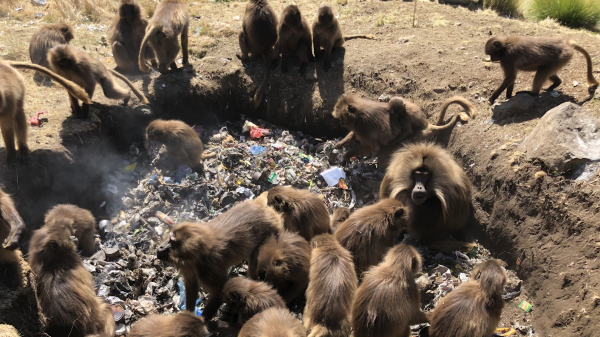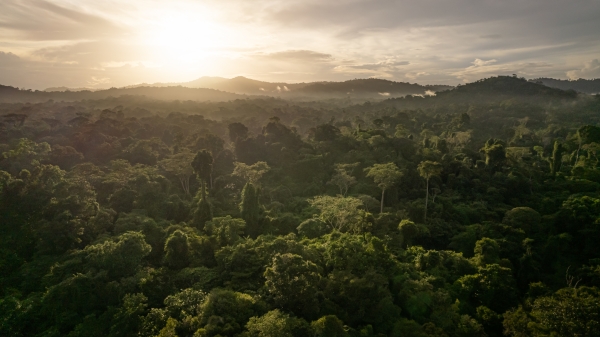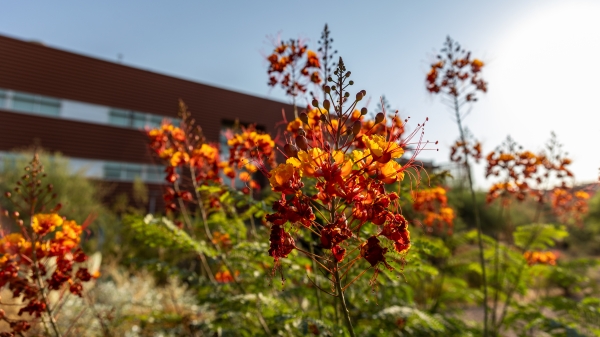Celebrating Earth Day around the world
ASU School of International Letters and Cultures faculty share how other nations incorporate sustainability

iStock image
Originating in the United States in 1970, Earth Day is now celebrated worldwide. But even before it became an official day, many countries were already mindful of their carbon footprint in their daily routines.
Arizona State University professors from the School of International Letters and Cultures share their insights into how sustainability and respect for the Earth are woven into cultures around the globe.
Germany
According to Professor of German Nina Berman, Germany has a history of prioritizing a relationship with nature that dates back to the 19th century. This can be seen in a range of cultural movements, from an 1811 gymnastics movement centered on engaging in physical fitness in nature and a hiking movement in the late 1800s, to the prominence of the European “nature cure” movement and homeopath Sebastian Kneipp, who laid the foundation for modern naturopathy.
Berman said it is even shown through the sizeable exhibition in Hamburg for Kapa David Friedrich, a painter known for his artistic commentary on the relationship of the human being to nature.
This widespread awareness of the important of nature can be seen in the modern day in many ways, including the fact that Germany, which uses a multiparty system, has a Green Party, which has had national representation since 1983. Though it has experienced its ups and downs, the Green Party won its largest percentage of the vote in 2021 at nearly 15%.
Berman remembers being a teenager in the 1970s and having four recycling stations at home. Her family also composted their food waste to use in their garden.
“Today in Germany, you have these kinds of trash cans outside of everybody’s homes,” she said.
Since 2022, single-use plastic grocery bags have been banned in the nation. Andto encourage recycling, Germany has a bottle return system called “Pfand”, which means deposit. Beverages packaged in single-use plastic bottles have a small deposit of 0.25 euro or less built into their cost.
Once you have finished your drink, you can return the bottle to any store that sells them. According to the recycling company TOMRA, Germany has the world’s largest and highest-performing deposit return scheme, achieving a record 98% return rate on eligible single-use drink containers.
For many Germans, the importance of respect for the environment also stems from their experience of the 1986 Chornobyl disaster, when a nuclear explosion at the power plant in Ukraine (then part of the Soviet Union) spread radiation across much of Europe.
“Nuclear pollution came out of the plant and destroyed the entire area around it. But the radioactivity and the radioactive clouds went all the way across Eastern Europe, into Western Europe,” Berman said. “So we had guidelines to take off our shoes when we entered the home, take showers and not buy certain foods that were grown outside for quite a long time. So this was a huge disaster in 1986. And that also sort of brought this awareness around how the climate crisis is emerging too, brought it to people's consciousness.”
Japan
Japanese culture has a long history of honoring nature and respecting resources. The Japanese word mottainai is commonly used to express the feeling of regret after wasting something. According weforum.org, the word is translated “don’t waste anything worthy” or
“what a waste,” and it encourages reusing materials — clothing, shoes or even leftover food — until their full value has been utilized.
The word mottainai is also associated with Japan’s Indigenous religion, Shinto, which considers the land, nature and even humans to be children of “kami,” which are deities. Because of this belief, nature is especially sacred in the Japanese culture.
“There is no particular god in Japan,” said Hiroko Hino, an instructor of Japanese in ASU’s School of International Letters and Cultures. “So religiously in Christianity, there is one God. But in Japan, there are hundreds of types of gods around us. So thank all the gods. And then think of the importance of showing gratitude every day. And then we feel, that’s some sort of ethical spirit, gratitude or some other — well, that’s how Japanese life has been for a long time.”
The Tokyo Metropolitan Government has a goal of halving the city’s greenhouse gas emissions by 2030 — a bold target for the world’s most populous city — as well as goals to become a leader in renewable energy usage and reducing food waste.
These are big aspirations for the future, but until then, Hino explains just how simple it is to be mindful of the planet each day.
It is as easy as turning off the lights when leaving a room or turning off the faucet when brushing your teeth, especially crucial for those in the American Southwest where water scarcity is becoming an urgent topic.
Italy
The Italian faculty at the School of International Letters and Cultures aims to teach students about environmental awareness through a cultural lens with courses such as ITA 350 Food and Culture: The Mediterranean Lifestyle in Italy.
Assistant Teaching Professor Ilaria Tabusso-Marcyan, a Rome native, teaches her students how to engage in healthier food systems through the Mediterranean diet and incorporates sustainability courses into the curriculum, such as composting.
She said her students view food in a completely different way once they have finished the class. Food is no longer just a way to fuel oneself or consume calories.
The Mediterranean diet emphasizes regional, local and fresh food systems and ties into the Slow Food movement, which started in Italy in the mid-1980s and champions locally grown food and traditional cooking.
For the last few modules of the Mediterranean lifestyle class, students examine sustainable food systems and food waste. They also learn about alternative food systems, such as community gardens, and the different in agriculture today, such as the loss of family farms and pollution as a result of the farming industry.
“They can see that the food system is part of the larger connection, and the way that we use the agricultural land has an enormous impact on the contemporary environmental issues related to pollution and drought,” Tabusso-Marcyan said.
The Mediterranean class has inspired some students to begin composting. To provide further ideas, Tabusso-Marcyan invited ASU alum Lauren Click to talk with her class last semester about her nonprofit organization Let’s Go Compost, which aims to make composting free and accessible for communities across the United States, similar to how libraries are a free resource. Click is the founder and executive director of the nonprofit, whose website offers classroom composting curriculum free to all educators.
It's all part of the class that uses the lens of delicious food to bring attention to sustainability.
“Thinking of the Mediterranean lifestyle and the Mediterranean diet is for students to understand their own food system and the way they eat,” said Tabusso-Marcyan. “So I’ve seen students at the end of the semester being much more aware about the issue of food waste and the impact that the food waste has on the environment.”
More Environment and sustainability

Students pitch in to help solve plastic problem in Ethiopian national park
This weekend, 30 students from Arizona State University’s Ira A. Schools of Engineering will take an 18-hour flight to northern Ethiopia. Their mission? To tackle a damaging plastic problem that has…

Study: Conservation actions highly effective at halting, reversing biodiversity loss
A new study, led and contributed to by Arizona State University faculty, provides the strongest evidence to date that not only is nature conservation successful, but that scaling up conservation…

Barrett Honors College to host nature walks for science, relaxation
Barrett, The Honors College at Arizona State University is gearing up to participate in the City Nature Challenge (CNC) for the fourth consecutive year. This annual event, taking place April 26–29,…